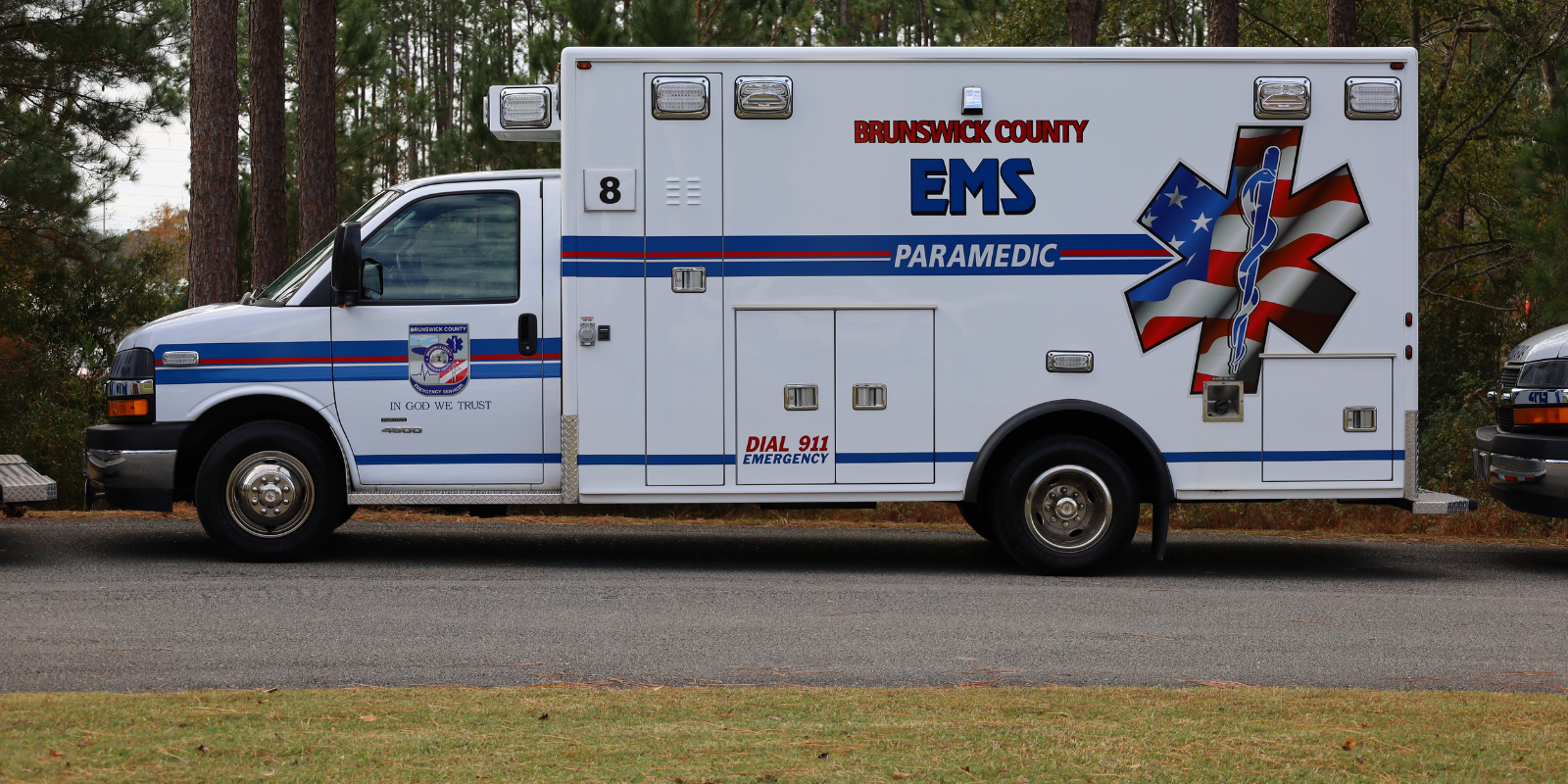EMS Courses
Welcome to the BCC Emergency Medical Sciences/Services (EMS) Program. We offer initial courses, monthly online and in-person continuing education courses, and specialty courses.
If you are interested in becoming a Paramedic, BCC offers both degree and certificate options.
- Associate in Applied Science Emergency Medical Science Degree, which is a five-semester college program. No credential is required to enter this program. Those with current EMT, AEMT or Paramedic credentials can earn college credit towards this degree.
- Certificate, taught in the evenings and on some weekends.
Explore all of our current course offerings below. They change often, so if you don’t see what you are looking for or want additional program information, contact Chip Munna at [email protected]. You may also contact BCC OneStop Student Services at [email protected] or 910-755-7320.
If you are a first-time registrant for certificate courses, please complete the form LINKED HERE prior to registering online. To register online, click on the button below and enter the course name in the Search field.
Paramedic Program Outcomes
CAAHEP Accredited Paramedic Programs and CoAEMSP Letter of Review (LoR) Programs track and report outcome measures annually to the Committee on Accreditation for the Emergency Medical Services Professions (CoAEMSP).
The most current CoAEMSP Annual Report requirement was for the calendar year 2022. We had no graduates during the 2022 reporting year. The most recent success rate for the North Carolina state cognitive exam was 100% (calendar year 2023). The most recent positive placement rate for graduates was 100% (calendar year 2023). The most recent retention rate was 85.7% (calendar year 2023), based on one student exiting the program. Positive placement is defined by the CoAEMSP as “Employed full or part-time in a related field and/or continuing his/her education and/or serving in the military.” Positive placement is measured at completion of the program.
Our 2024 Paramedic cohorts had 16 students start the program and 14 complete it, resulting in a 87.5 % retention rate. All 14 students that completed the program passed the NCOEMS state Paramedic exam, with a 93% job placement result.
Minimum Expectations Goal Statement: To prepare Paramedics who are competent in the cognitive (knowledge), psychomotor (skills), and affective (behavior) learning domains to enter the profession.
“The Brunswick Community College Paramedic program has been issued a Letter of Review by the Committee on Accreditation of Educational Programs for the Emergency Medical Services Professions (CoAEMSP). This letter is NOT a CAAHEP accreditation status, it is a status signifying that a program seeking initial accreditation has demonstrated sufficient compliance with the accreditation standards through the Letter of Review Self Study Report (LSSR) and other documentation. Letter of Review is recognized by the National Registry of Emergency Medical Technicians (NREMT) for eligibility to take the National Registry’s Paramedic credentialing examination(s). However, it is NOT a guarantee of eventual accreditation.”
To contact CoAEMSP:
214-703-8445
www.coaemsp.org
Advanced Emergency Medical Technician: “To prepare Advanced Emergency Medical Technicians who are competent in the cognitive (knowledge), psychomotor (skills), and affective (behavior) learning domains to enter the profession.”


